
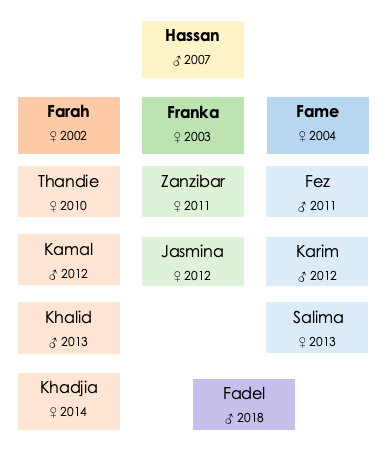
Animals
This study was carried out on a zoo-housed group of Barbary macaques at Gaia Zoo in the Netherlands. The group consisted of 14 individuals, of which nine were adults (five females, four males) descending from 3 matriarchs (namely, Farah, Franka, Fame), an alpha male (Hassan), and a juvenile male that has been transferred from another facility.
Experimental design
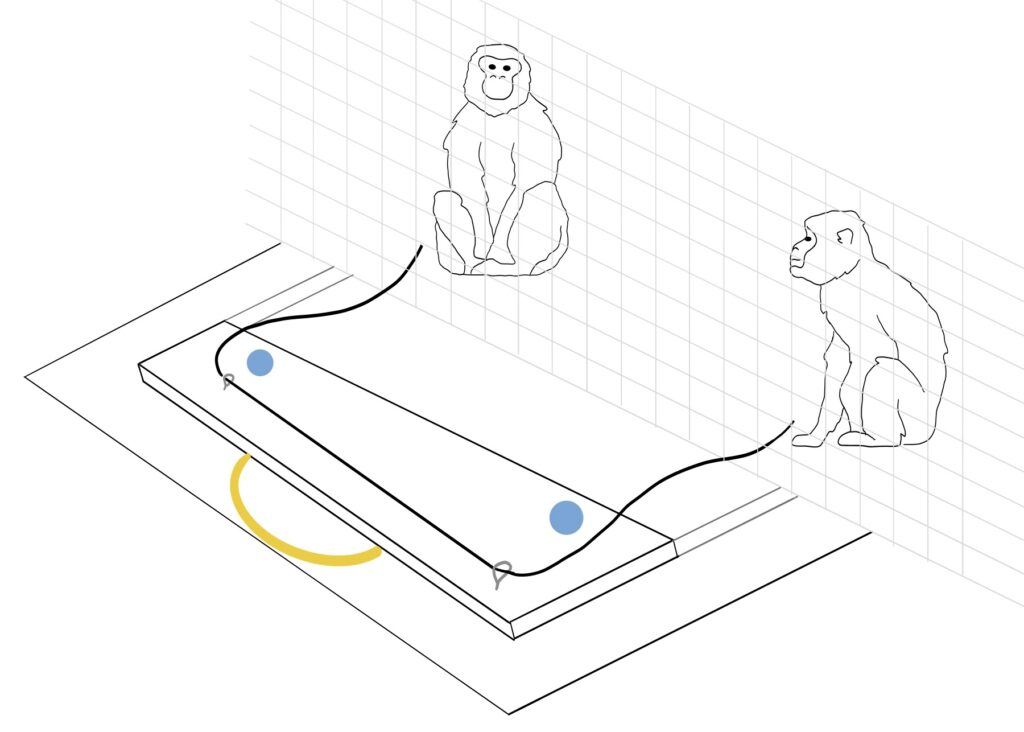
Cooperation: individual cooperative tendencies were assessed using the loose-string paradigm. The experimental set-up consisted of a sliding feeding platform with food rewards on top. Food rewards could only be accessed by the simultaneous pulling of the string’s ends by two individuals.
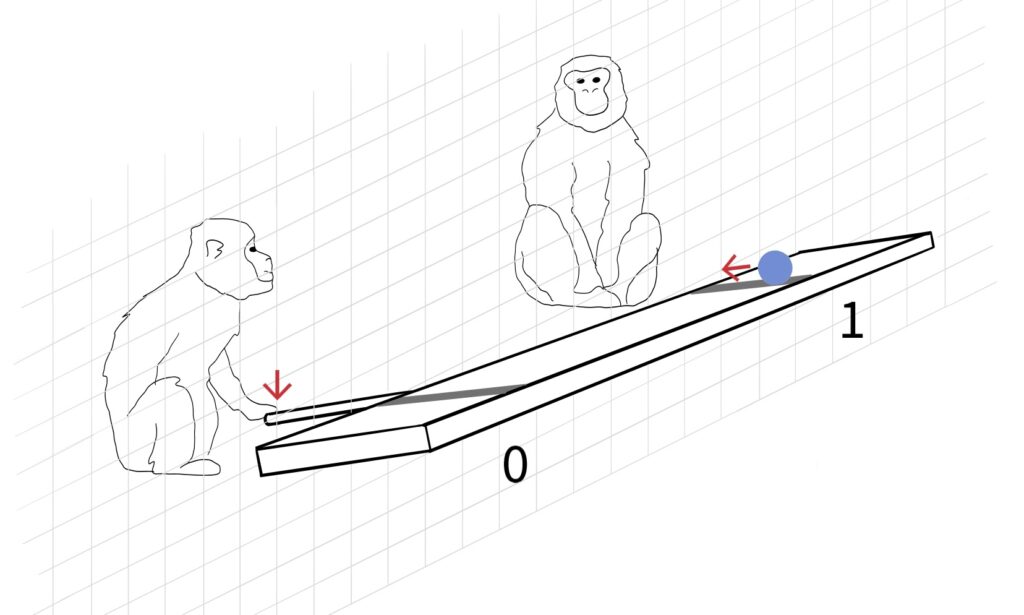
Prosociality: individual prosocial tendencies were assessed using the group service paradigm. The experimental set-up consisted of a wooden board with two transparent plastic tubes fixed on top (position 0 and position 1), through which food rewards could move. A wooden handle (position 0) could be pressed downward, resulting in food provisioning to the individual in position 1.
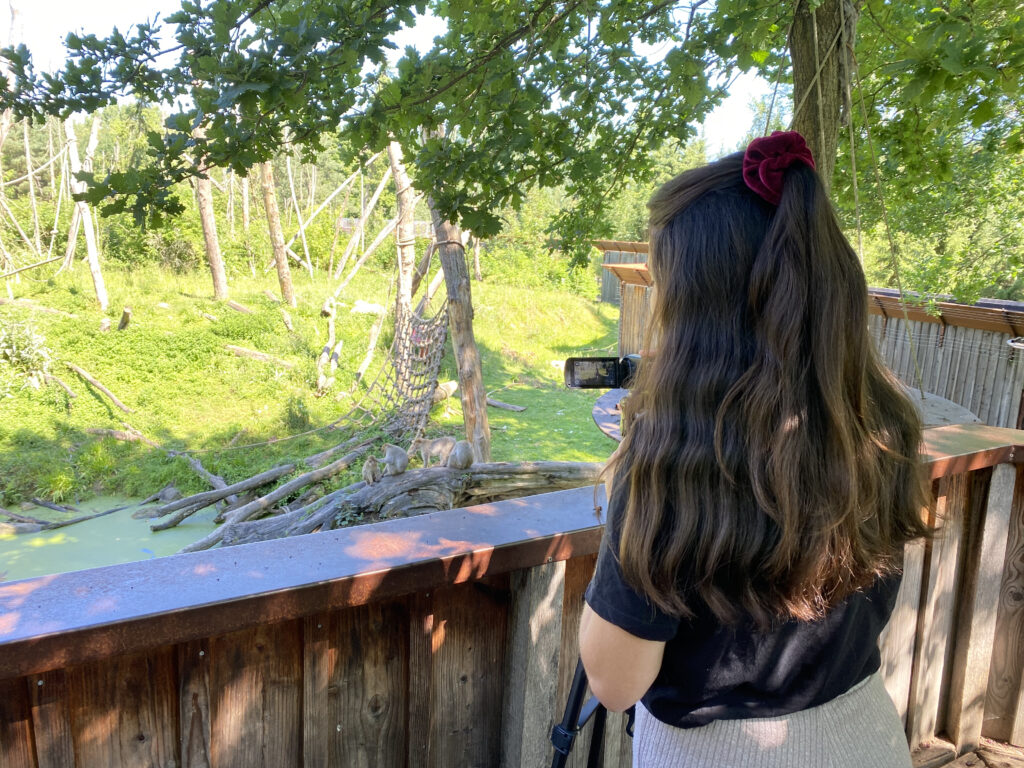
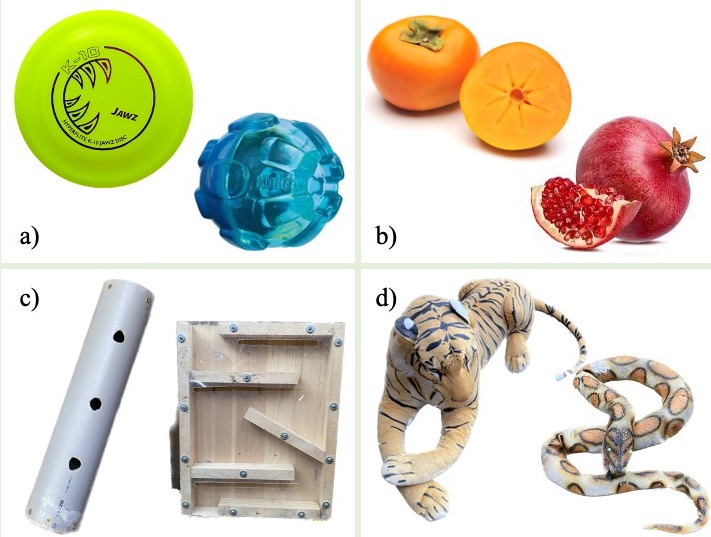
Personality: the personality traits in the group were assessed using behavioural observations and novelty tests.
– Behavioural observation: observations were performed using a continuous focal sampling method (20min/focal animal).
– Novelty tests: included the provision of two types of a) novel objects and b) food, c) food puzzles, and the presentation of d) predator models.
Go to Results ➜